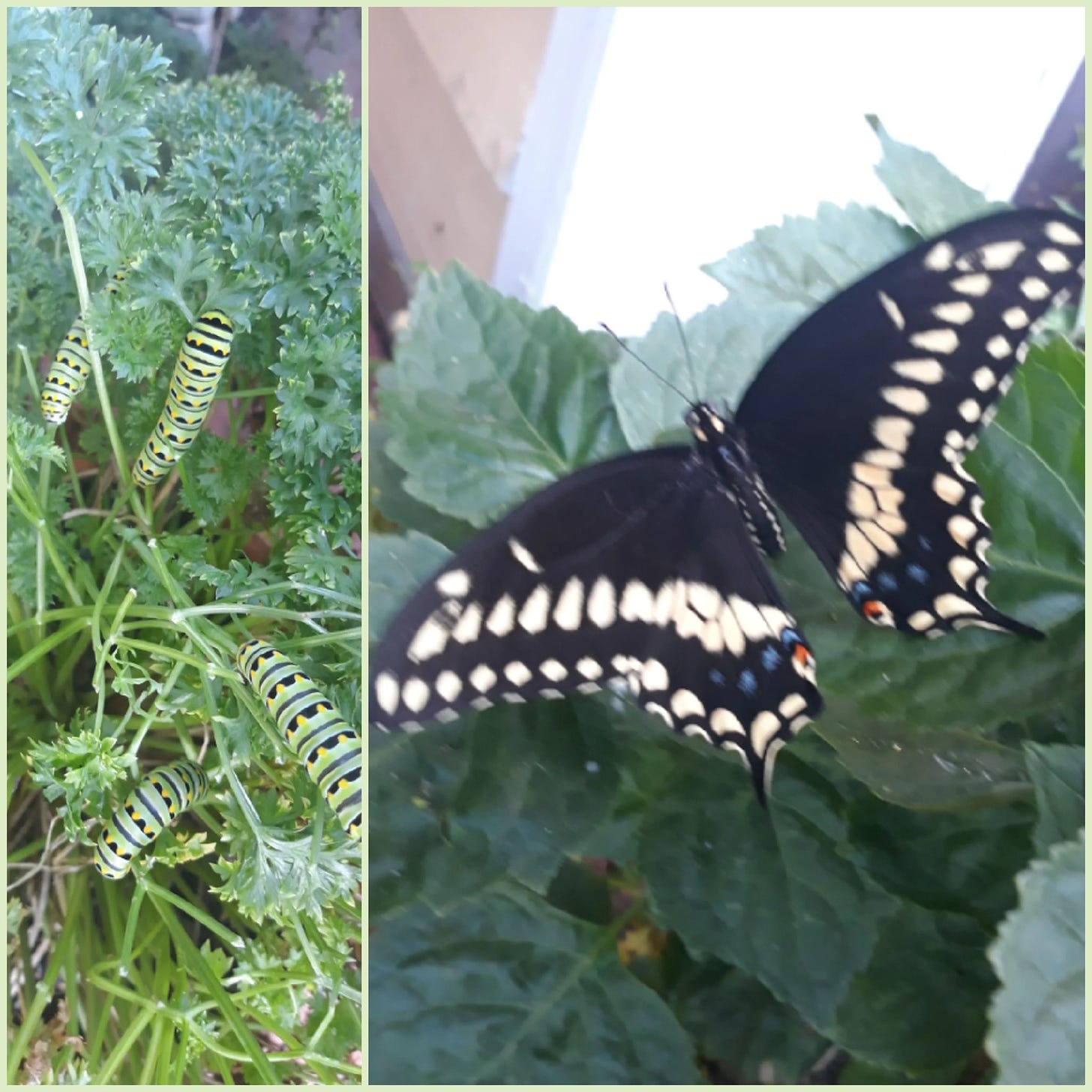
Growing pains occur when you evolve internally while your environment stays the same, creating a gap in the compatibility between who you are and where you are.
The growing pains of adulthood feel like wearing shoes that no longer fit—toes scrunched up against the edges, cramping, but walking around in them every day despite the pain. When you take those shoes off in rare moments of reflective solitude, the relief feels overwhelming. It becomes obvious the shoes no longer fit. Eventually, you either listen to your growing pains and buy yourself a new pair of new shoes (seek change), or you learn to live with the pain (stay where you are). These shoes can be a job, a city, a relationship, or anything else that no longer fits in your life.
It is painful to outgrow something while you’re still in it. It’s disorienting. It causes dissonance. I’ve found myself at the center of many changes recently—I left my job, I moved, I started writing, my whole routine changed. It feels like I threw out my entire shoe collection and am replacing each pair one by one. These changes gave rise to a series of emotions—some of them easy to label: anticipation, excitement, growth. Some much harder to label, feelings like:
Why do I only feel partially activated here?
Why can I no longer be my full self with people I always felt totally comfortable with?
Why am I craving more solitude than ever?
What I was experiencing were the effects of an internal evolution transpiring in a static environment. I was changing, but no one could see it. Heck, I could barely see it. I could only feel it because of these growing pains. Change always starts internally before it expresses itself externally. It is just like going through a growth spurt when you’re younger: you start to feel cramps—growing pains—in your legs that are a mystery to you. And sure enough, those aches eventually turn into external changes: growth!
Growing pains are your internal alarms saying: change is coming! change is coming! They are a sign to commence going from one phase to another. For example, say you’re no longer aligned with your relationship or your friend group, despite never experiencing any problems with them beforehand. This feels strange—why does something that was only ever a source of joy, belonging, and community now feel abrasive and unfamiliar? Answer: because you are no longer the person who it provided joy, belonging, and community to—you’ve grown. You’ve iterated into a new version of yourself internally, while your external world remained unchanged.
One of the reasons it is so powerful to go somewhere new is because no one knows who you are—your external perception resets entirely. It’s like tearing away all of the vestigial cobwebs draped over your old self. You get to dust yourself off, polish yourself up, and present a new, updated you to the world. No one can say: what happened to you? Because they never knew a previous version of you. They only know who you are right now. And that is quite liberating—to be fully present without worrying about what your environment expects of you.
growth involves grieving
What I realized is that growing pains (or: feeling unfamiliar in a situation that previously felt familiar) means that a version of yourself is dying. Not in a morbid way, but in the sense that you are shedding a version of yourself that no longer aligns to create space for a new self to emerge. Sort of like a caterpillar’s metamorphosis into a butterfly—an entirely new you is making its way out from within.
This whole process of watching a part of yourself die as you are still in an environment where that self needs to exist is quite confusing. Acting out your prior self isn’t challenging per se, because inertia keeps your habits and ways of being alive, but it becomes intrinsically painful to portray a part of you that is withering. What once required no effort (because it was natural! it was you!) now requires immense effort (because it is no longer you, so you have to act out that version of yourself). The shoes are getting tighter because your feet are growing. This is why environmental change is so powerful: you can manually leave behind a version of yourself and go somewhere else to let a new self flourish.
compatibility vs. love

Growing pains are caused by a contraction in compatibility. It’s worth noting that love and compatibility are not fused. Compatibility is: how much overlap do you presently have with this person or thing? It is not about how much love you have for that person or thing. We can outgrow compatibility before love expires—meaning: you can still love a partner you are no longer compatible with, you can still love friends you no longer have much in common with, you can still feel affection for a city you grew up in while understanding that it’s no longer a fit for you.
We often stay in situations that no longer fit simply because we “still love that [person, place, thing]”, but you can move on from something while still loving it. Love may never expire. You often hear people say they still have love for their high school sweetheart, despite the awareness that the relationship was never viable. It is natural to still love things we’ve grown out of (think about the fondness you have for your favourite childhood books, toys, clothes, friends even! They may no longer have an active place in your life, but you still have love for them). Each person in our life shapes us in some way, and we should be grateful for their impact. But staying somewhere you no longer feel compatible with is prohibiting your natural growth from transpiring. To stop that growth is to suppress your own becoming. And that typically leads to negative outcomes, namely: resentment for the thing you stayed with despite feeling the connection withering due to a divergence in compatibility.
leave in connection
My friend recently shared an idea with me that I’ve been loving. He said: whenever you go from one thing to another, make sure to leave in connection. I figured he meant: when you leave somewhere, be present and grateful for what it gave you before you go. Seems simple enough, right?
But as I’ve explored my own growing pains, I’ve understood that to leave in connection is to acknowledge, celebrate and grieve the version of yourself that was conceived in that place. To make peace with a part of yourself that is no longer. Not in a dark, painful way, but in a beautiful, celebratory way—by acknowledging that this version of yourself was a critical part of your development. To recall and be grateful for all of the beautiful, explorative ways you grew in this iteration of yourself, while understanding that this version of yourself has had its time. You make peace with its completion—you leave in connection.
Grief can be extremely powerful when done right. To grieve properly is to look at what has passed squarely in the eye, to bow your head and say thank you, and to move on from it with acceptance and gratitude (I know: easier said than done). The challenge with grief is that most people view it as dark, black, dense. They only see the shadow of grief—the pain in it. But if you step into grief and surrender to it fully, it’s actually quite pure, quite human.
In the case of leaving in connection, you are grieving a version of yourself that has passed. When you leave in connection, you allow yourself to enter in connection into whatever you do next (i.e grieving the self you were in your past relationship lets you enter a new relationship in alignment, unobstructed by any unresolved feelings about your previous relationship). Leaving in connection seals the envelope on one phase of your life, preventing its contents from spilling out into the next phase.
It is only when we don’t leave in connection—when we are unable to accept that a phase is complete—that the self begins to mutate in unnatural ways. It’s as if we fail to let a broken bone heal properly and instead go about life with it still fractured. It heals unhealthily, causing more problems later on. To leave in connection is to set the bone straight before moving forward. It is to align yourself with presence and gratitude before going from one phase to the next. This is the beauty of leaving in connection: you prepare a little patch of soil full of presence and gratitude, made up of the contents of the phase you said goodbye to, creating a fertile plot for your next phase to grow from.
growing pains are instructive
Growing pains are a signal that:
Your compatibility with where you are is shrinking.
Your internal world has evolved and no longer matches your external world.
A part of you has begun to wither. You may have a part of yourself to grieve in order to let a new part of yourself flourish.
Not only are growing pains normal, but they are highly instructive. They say: you’re alive, you’re changing, your inner world is expanding. They say: look at your shoes and decide if they still fit. When you identify what is changing internally, you can see what you need to change externally to transmute the pain into growth. Just like when your childhood leg cramps transmute into a taller you and everyone suddenly says: WOW, you’ve grown! (or in my case—WOW! I hope you’re still growing!), the same goes for the emotional growing pains of adulthood. They’re confusing, they hurt, they create an unfamiliar dissonance with where we are. They demand we create space for them. And when we do create space for our internal selves flourish externally, the changes express themselves, revealing what we were feeling under the surface to everyone else—leading them to say: WOW, you’ve grown! External change follows internal pain.
It’s never a bad time to scan yourself for growing pains—exploring the sensations in our inner world is a form of mental maintenance. The same way physical pain is a bid for attention from our body, mental pain is a bid for our attention from our mind. So, ask yourself: is there anything changing in your inner world that you need to create space for in your outer world?
Do you resonate with what I write about? Maybe we should work together: If you resonate with the ideas I write about and want to cultivate a life you genuinely enjoy living, where you align your actions with your values, move towards the changes you know you want to make, and consciously harvest self-knowledge in the process, send an email to isabel@mindmine.school or to isabel@mindmine.school or DM me on Twitter to explore what working together 1-1 would look like.
PS—Most of my thoughts spill onto Twitter before they make it here. If you liked this piece, you might also enjoy my peice on dissonance. Thanks for being here :).





Wonderful! So many insights! I’d been thinking about just how important rites of passage are, which give space to pause & breathe. Not merely placeholders that way..: Convocation. Break up. Notice period.
i’ve been questioning my internal pain and why confronting it can be so overwhelmingly difficult sometimes. you capture the experience of those pains so beautifully that i will continue to return to them for comfort. thank you!